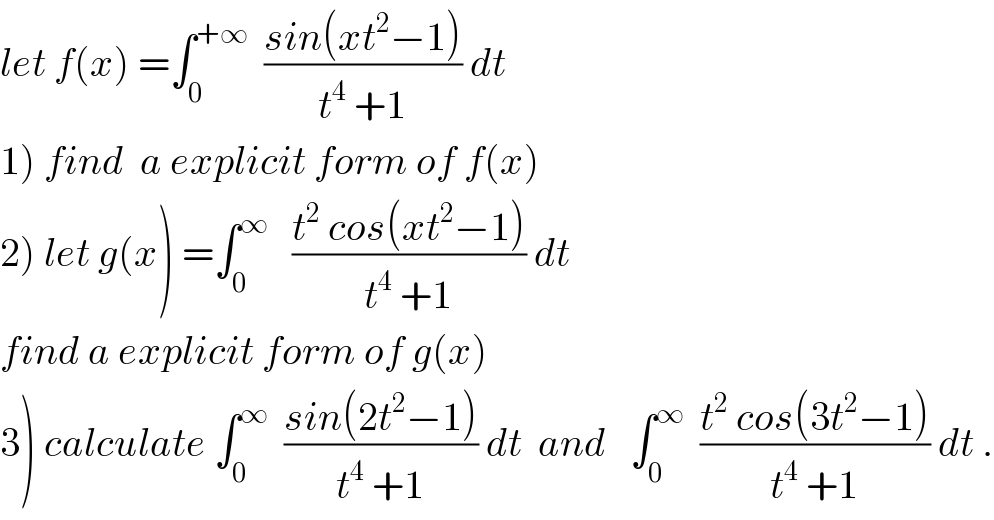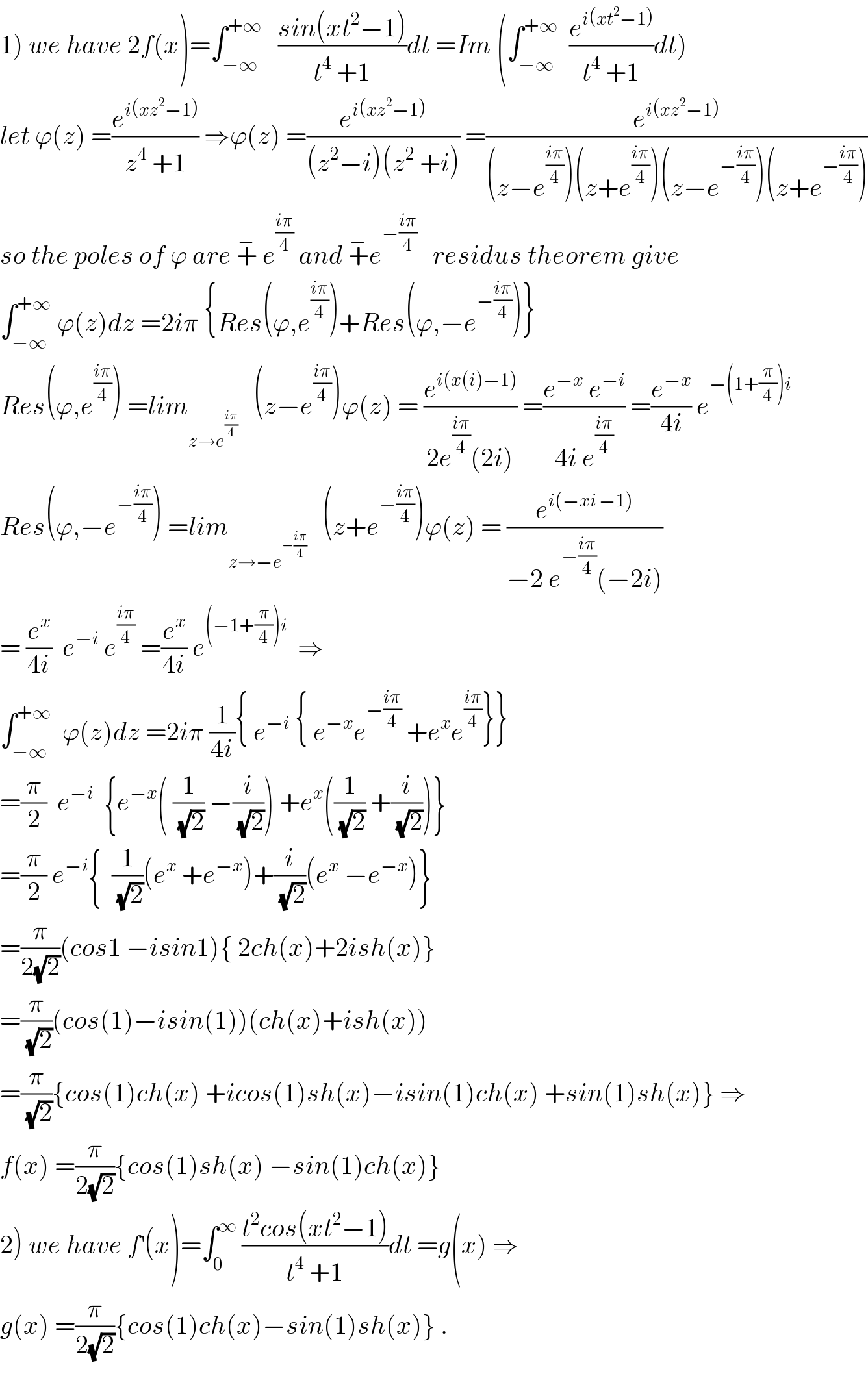
Question and Answers Forum
Question Number 57237 by maxmathsup by imad last updated on 31/Mar/19

Commented by maxmathsup by imad last updated on 05/Apr/19

Commented by maxmathsup by imad last updated on 05/Apr/19

| ||
Question and Answers Forum | ||
Question Number 57237 by maxmathsup by imad last updated on 31/Mar/19 | ||
 | ||
Commented by maxmathsup by imad last updated on 05/Apr/19 | ||
 | ||
Commented by maxmathsup by imad last updated on 05/Apr/19 | ||
 | ||